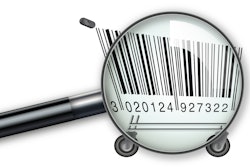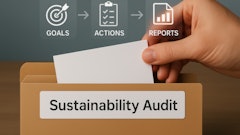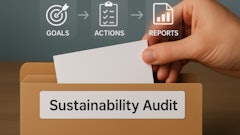
When’s the last time you were asked about your company’s sustainability strategy? With the ever-increasing focus on waste reduction and the environment, there’s a good chance it was pretty recently. From customers and employees to partners and investors, sustainability has become a hot topic. Stakeholders want to know that your company is aware of its environmental and social impact and taking steps to ensure a livable planet for future generations.
Why is sustainability important?
Sustainability is more than important. It’s vital. To understand why, let’s look at how. The Bruntland Commission, a group of countries pursuing sustainable development together, define sustainability as, “Development that meets the needs of the present without compromising the ability of future generations to meet their own needs.”
Sustainability lives at the intersection of environmental science and social science. Our modern way of living consumes a lot of natural resources, but taking more than we use will prove detrimental down the road.
So, just how big is the problem? Every year, the Global Footprint Network calculates Earth Overshoot Day, marking “The date when humanity’s demand for ecological resources and services in a given year exceeds what Earth can regenerate in that year.” In 2020, Earth Overshoot Day fell on Aug. 22. That means that all of the resources consumed from Aug. 23-Dec. 31 added to Earth’s ecological deficit.
The good news is, the organization’s data points to a 14.5% reduction in our carbon footprint compared to 2019. While this news is promising, there is still much to be done and change can start with individuals and companies taking small steps.
For companies, the benefits of adopting a sustainability strategy reach beyond the environment. A solid sustainability strategy improves trust among employees, investors, partners and customers. It also helps improve credibility and reinforces community relations. In short, it shows that the company cares, which is something that resonates with stakeholders.
Where to start
Much like a mission and purpose, no two companies will or should have the same sustainability strategy. If you’re unsure where to focus your company’s attention, familiarize yourself with the 17 Sustainable Development Goals created by the United Nations General Assembly. These goals speak to the range of environmental, social and governance (ESG) actions, and include zero hunger, clean water and sanitation and climate action. Find one or two that align with your business’s overall strategy and dig in.
By its very nature, cold chain industry operations line up with several of these goals. For example, the United Nations estimates that one third of the world’s food supply is wasted due to the inability to preserve food for consumption. Companies that own and operate temperature-controlled warehouses offer supply chain solutions that preserve product quality and minimize food waste, thereby improving access to food.
Executing a sustainability strategy is easiest when you have champions across the company who share in the vision. District-level energy champions help raise awareness, drive performance and rally support.
The future of sustainability
Much like technology and safety, sustainability has become a pillar of company operations – stakeholders want to know what you’re doing in these areas and how you’re embracing change. Small changes can have big impact, so find a focus that resonates with your employees, customers and investors, and start changing the world.

















